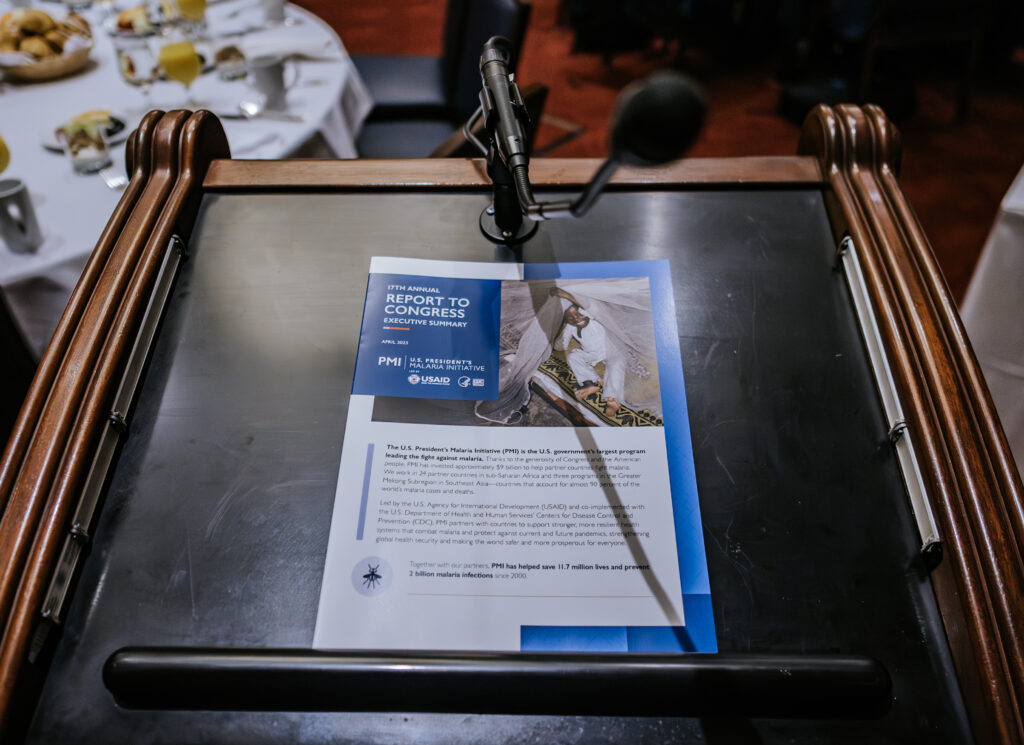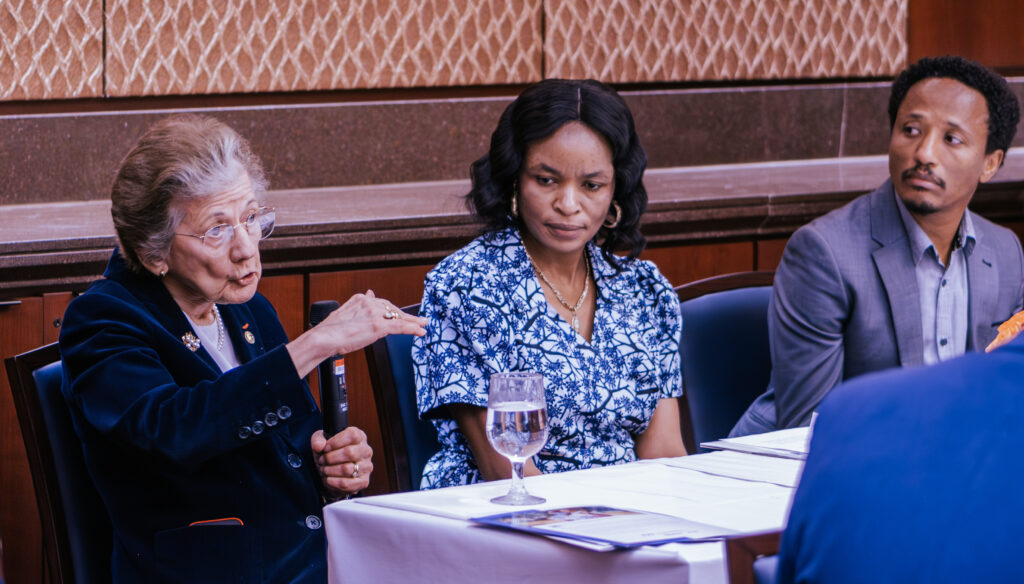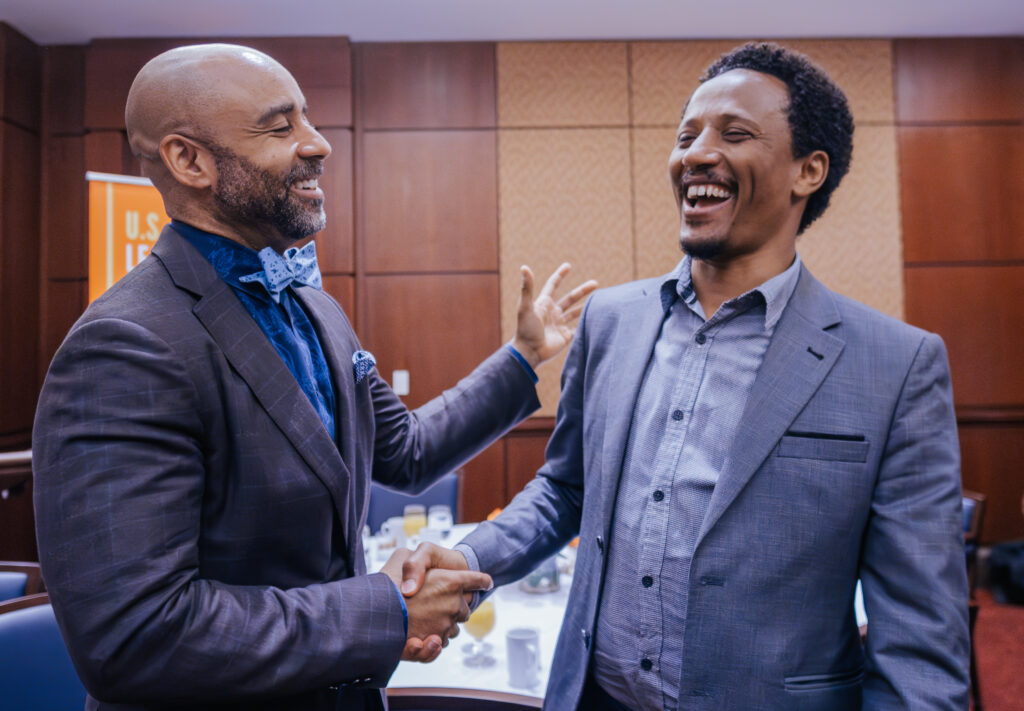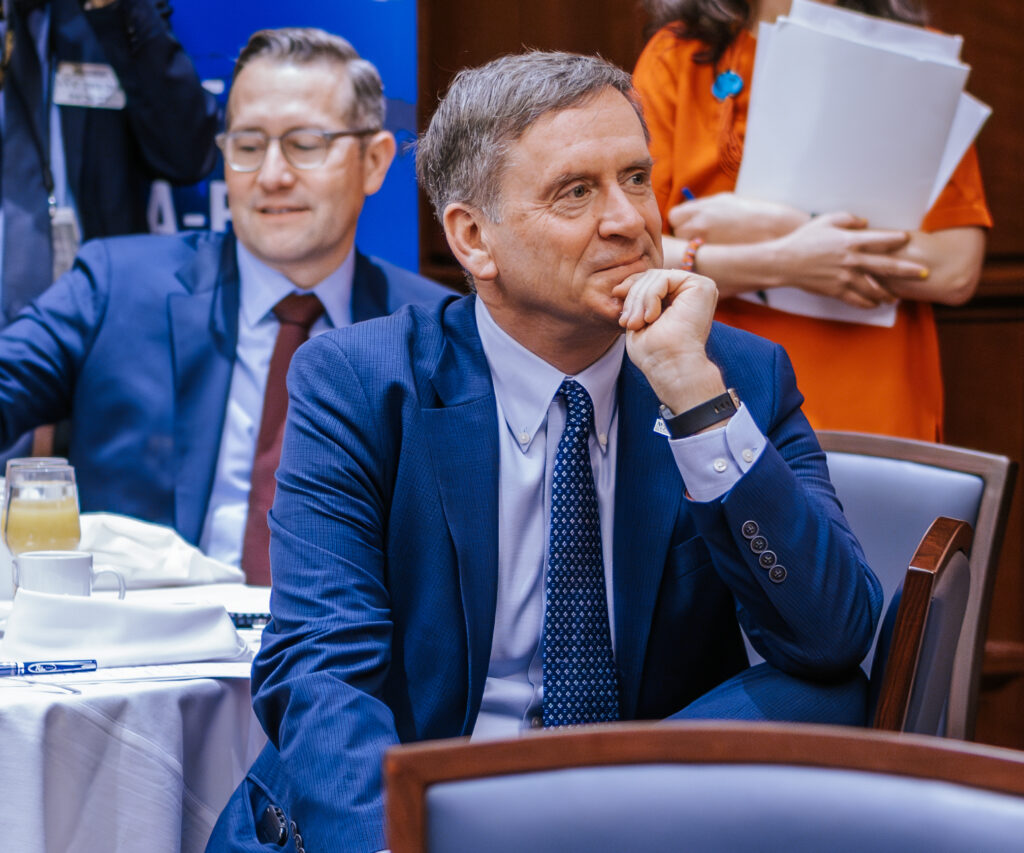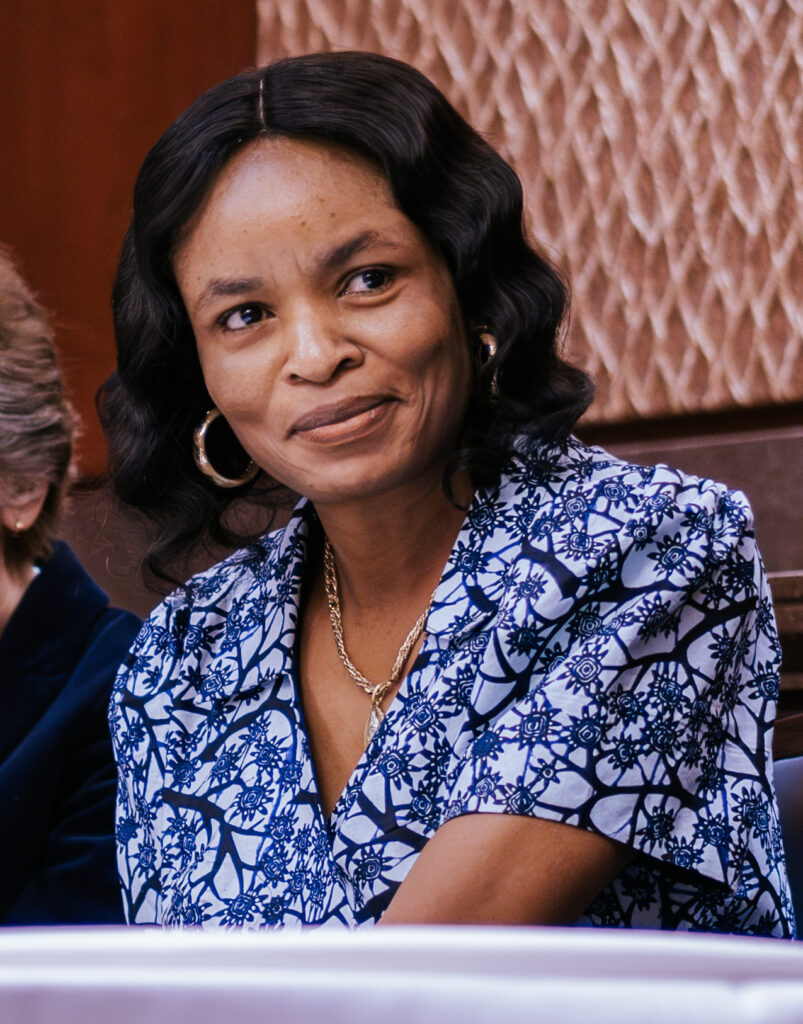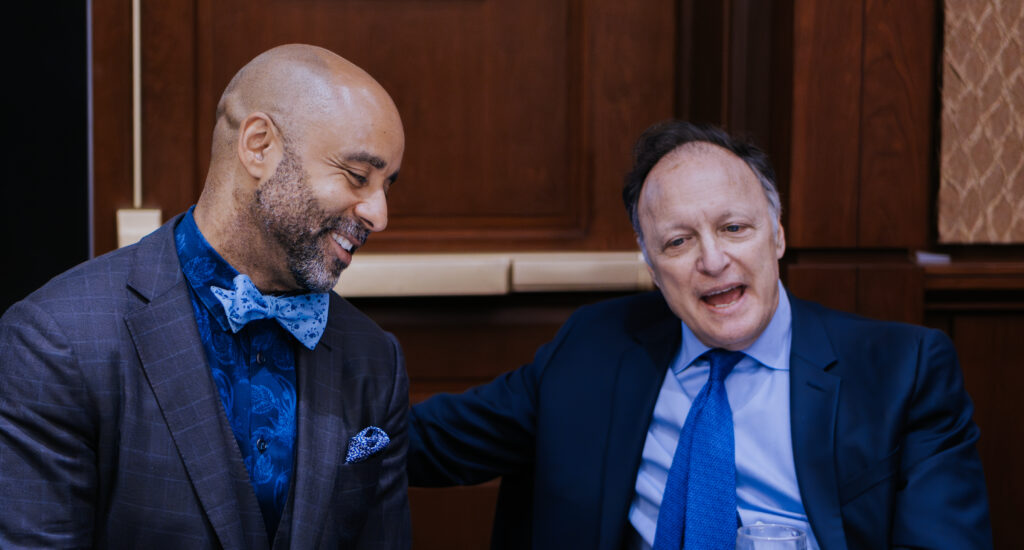On April 26, U.S. Global Malaria Coordinator Dr. David Walton joined congressional leaders and global health champions on Capitol Hill to commemorate World Malaria Day.
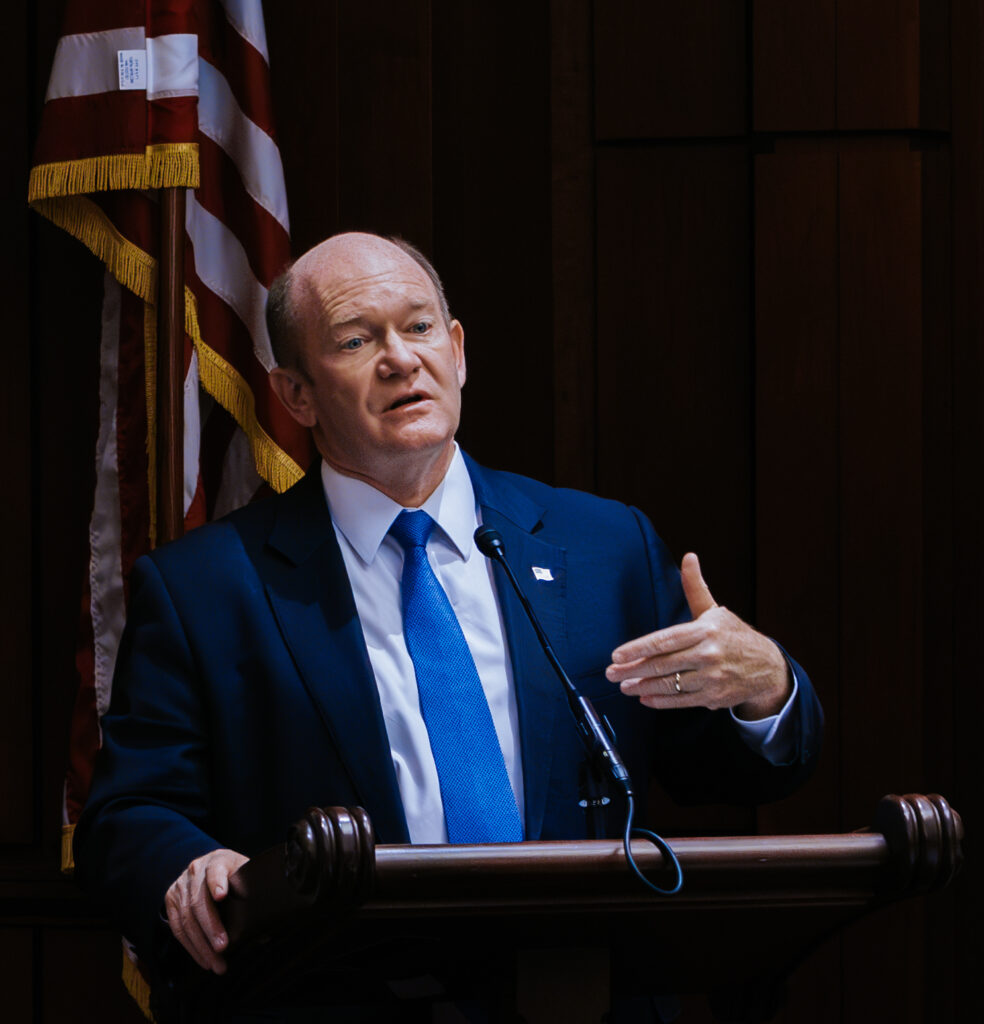
Senator Chris Coons says he will continue supporting PMI’s efforts for a malaria-free world during his speech at the Malaria Champions Breakfast.
The event was hosted by Senator Chris Coons and Senator Roger Wicker, Co-Chairs of the Senate Caucus on Malaria and Neglected Tropical Diseases, Malaria No More, United to Beat Malaria, and the Malaria Roundtable
Dr. Walton and partners discussed the historic gains in malaria control and elimination and how investing to end malaria leads to stronger health systems that can prevent, detect, and respond to emerging threats and save lives. Speakers also highlighted PMI’s 17th Annual Report to Congress, which shows the incredible progress that PMI’s partner countries have made, as well as the challenges that persist in the fight to end malaria.
Senator Chris Coons celebrated the many advancements made to slow the spread of malaria and noted he was proud to support PMI. “As a member of the Senate Foreign Relations Committee and the Chairman of the Senate Appropriations Subcommittee that funds foreign assistance, I will continue to work in a bipartisan manner to deliver the resources needed to ensure the world is malaria-free.”
Representative Jan Schakowsky spoke about the important role the U.S. plays to end this treatable and preventable disease for good. Senator John Boozman spoke of the strong bipartisan support malaria has received, and the continued U.S. leadership needed to bring an end to malaria globally.
Dr. Robert Seder spoke as chief of the cellular immunology section and acting chief of the vaccine immunology program at the National Institutes of Health (NIH). He commemorated NIH’s innovation and dedication through new tools such as vaccines and monoclonal antibodies.
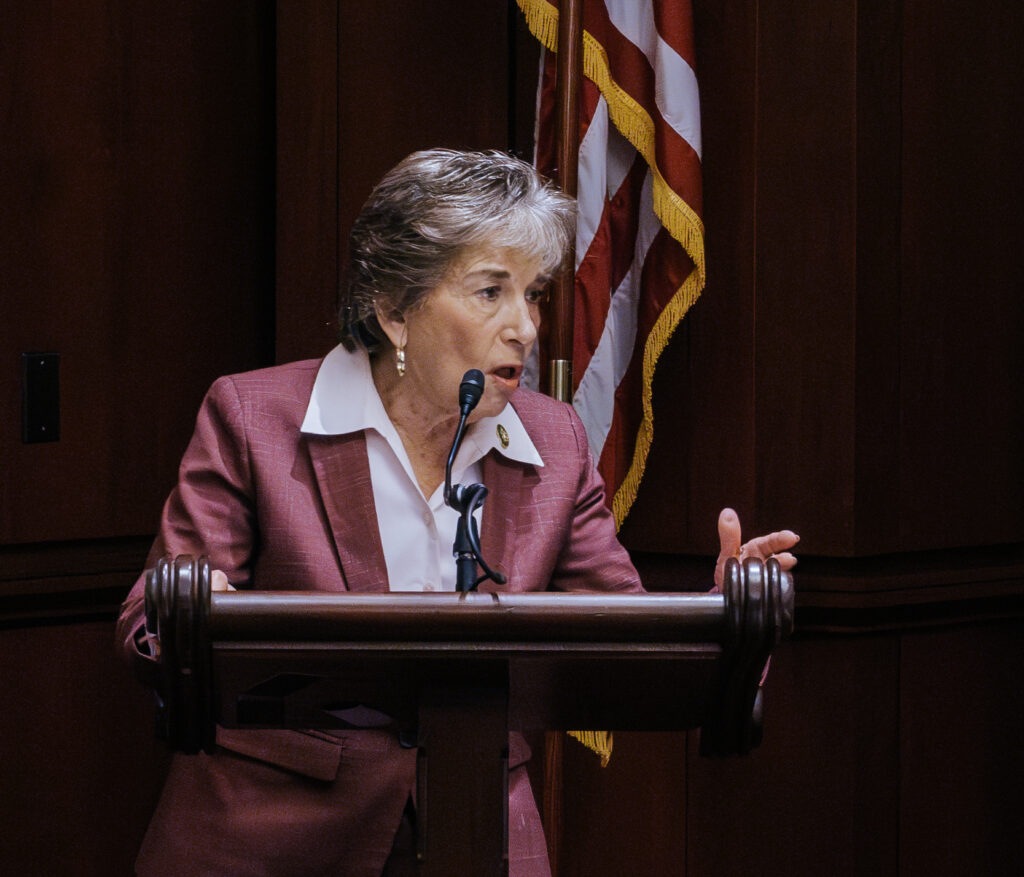
Representative Jan Schakowsky speaks about the important role the U.S. plays in malaria prevention and treatment at the Malaria Champions Breakfast.
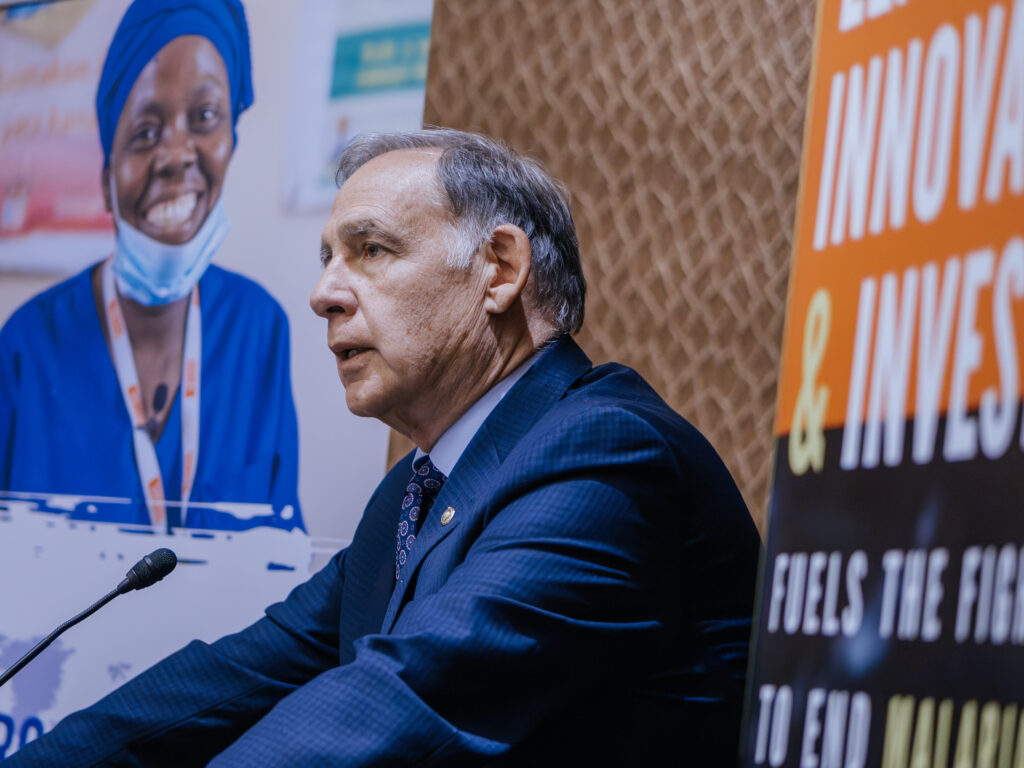
Senator John Boozman speaks of the strong bipartisan support that malaria continues to receive at the Malaria Champions Breakfast.
The breakfast also featured a panel including United to Beat Malaria Advocate Sifa Ndusha, Armauer Hansen Research Institute’s Dr. Fistum Tadesse, and University of Maryland at College Park and Johns Hopkins University Bloomberg School of Public Health’s Dr. Rita Colwell.
United to Beat Malaria Advocate Sifa Ndusha shared her experience as a malaria survivor. Dr. Rita Colwell spoke to her years of experience working in infectious diseases. She currently works at the University of Maryland at College Park and at Johns Hopkins University Bloomberg School of Public Health. Dr. Fitsum Tadesse spoke about his experience leading a malaria research team to study a new invasive mosquito, the Anopheles stephensi, at the Armauer Hansen Research Institute in Addis Ababa, Ethiopia and as a 2022 Alan J. Magill Fellowship Recipient.
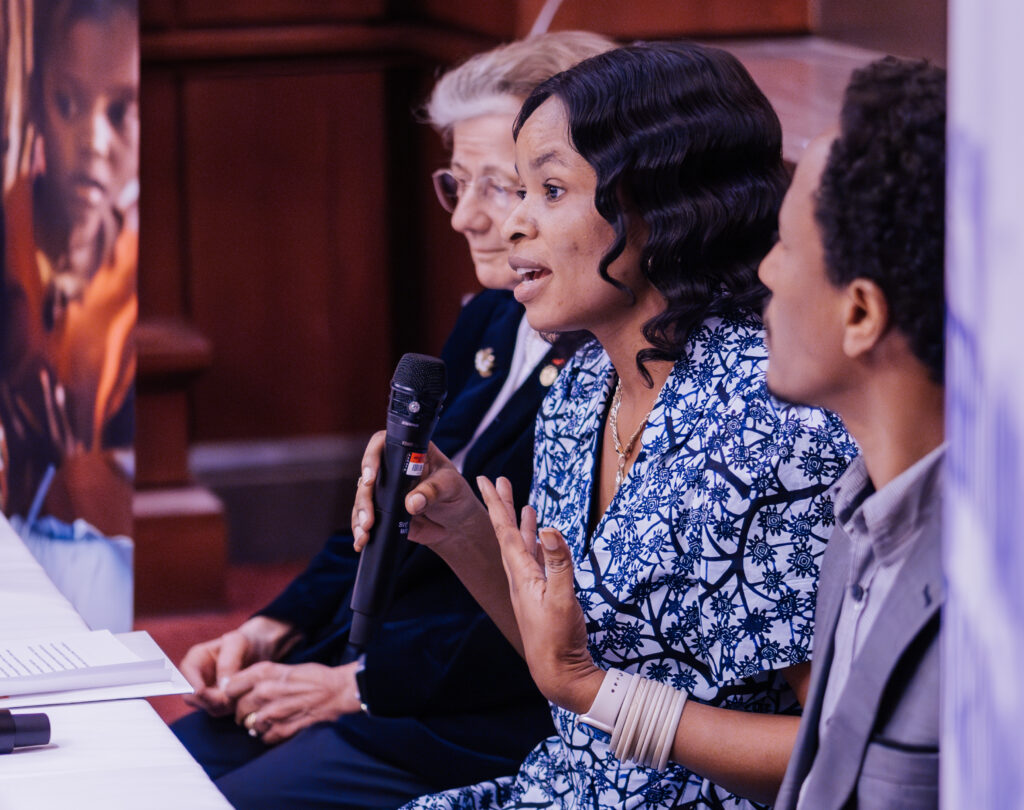
United to Beat Malaria Advocate Sifa Ndusha speaks about her experience as a malaria survivor at the Malaria Champions Breakfast.
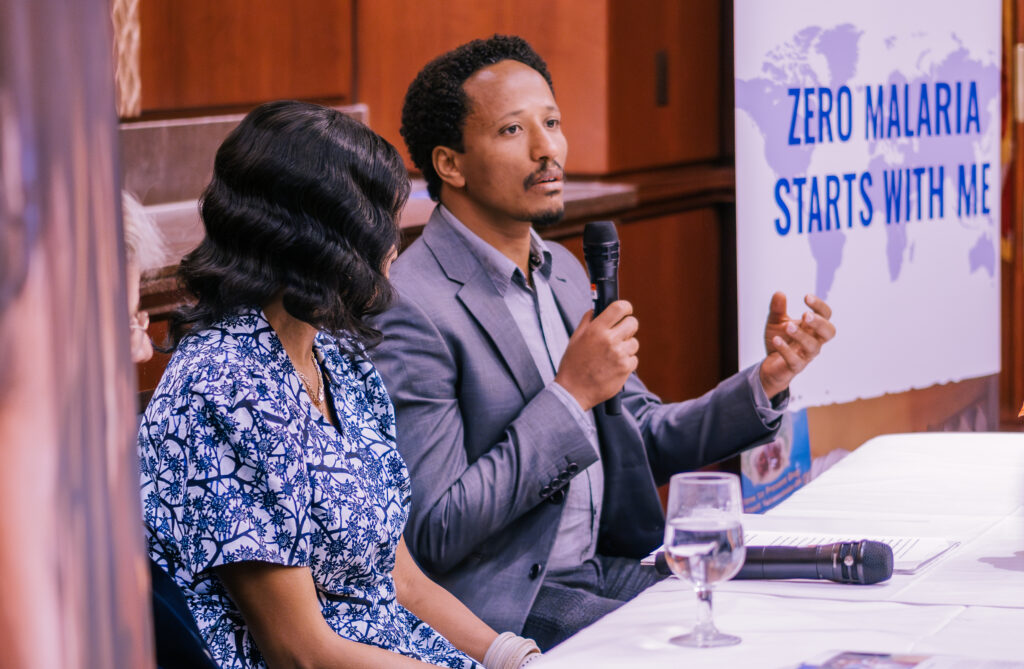
Dr. Fitsum Tadesse speaks about his experience leading the Armauer Hansen Research Institute in Addis Ababa, Ethiopia.
Other speakers included The Global Fund’s Executive Director Peter Sands and former USAID Administrator Ambassador Mark Green (ret.), who spoke about the importance of fighting malaria to save lives and how reducing malaria enables countries to unlock economic growth.
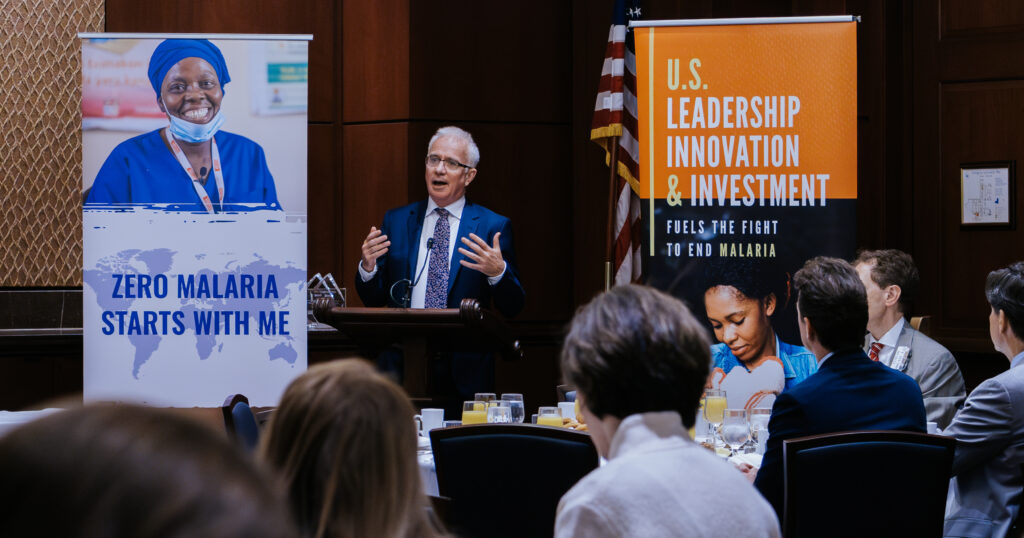
The Global Fund’s Executive Director Peter Sands addresses congressional leaders and global health champions at the Malaria Champions Breakfast.
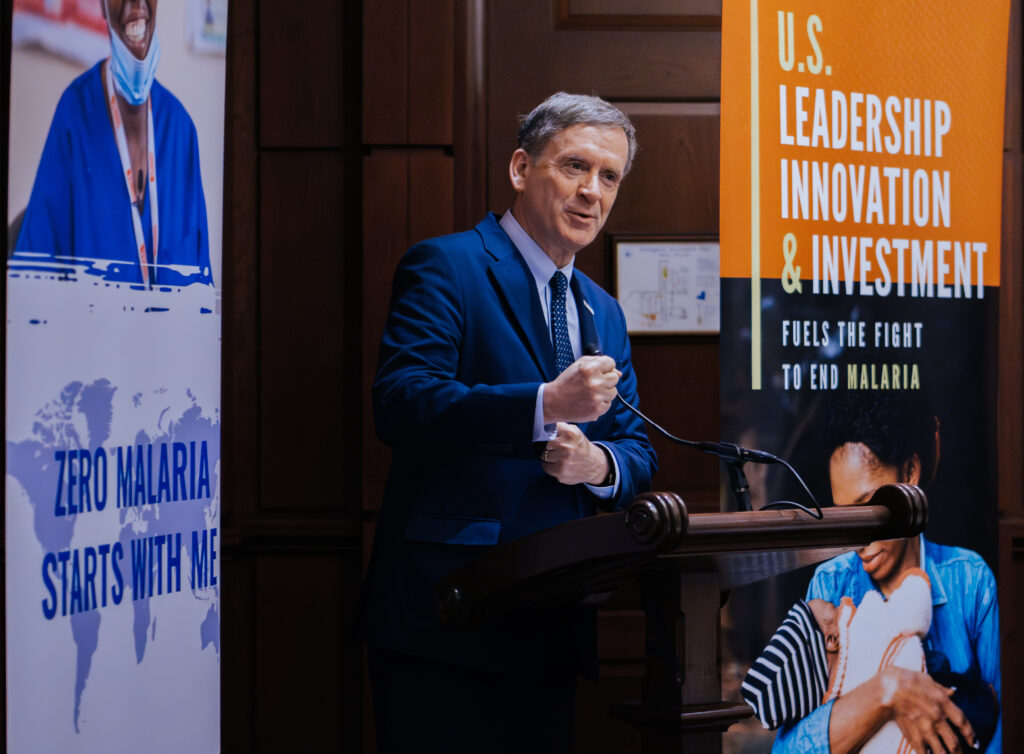
Ambassador Mark Green (ret.) speaks about the importance of fighting malaria so that no one dies of a mosquito bite.
Dr. Walton concluded the event by acknowledging the gains that PMI and partners are making as they fight to end one of the world’s oldest and deadliest diseases. He highlighted how PMI is working with partners to “invest, innovate, and implement,”the theme of this year’s World Malaria Day. Specifically, he spoke to the benefits of investing in health systems, including community health workers and local scientists, who play an essential role in continuing services in the face of disruptions such as COVID-19; thus fostering stronger, more resilient health systems.
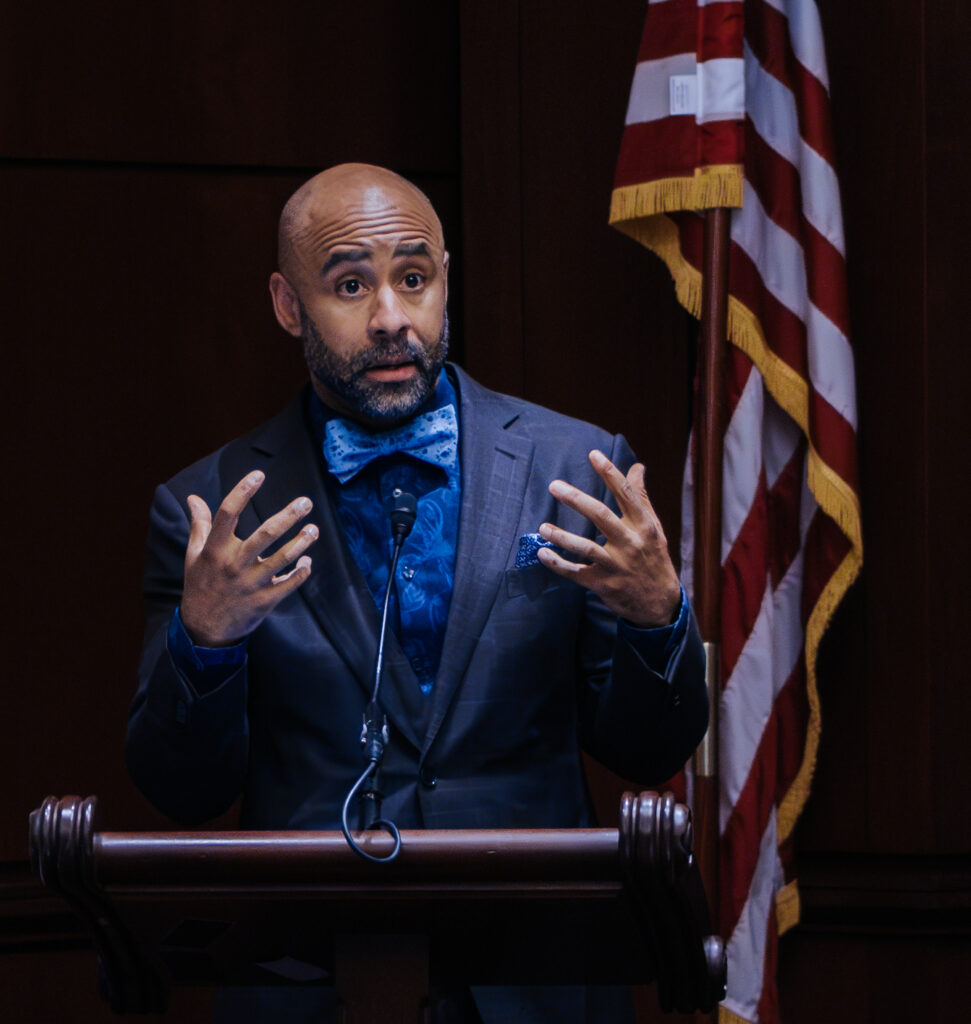
U.S. Global Malaria Coordinator Dr. David Walton highlights how PMI works with partners to “invest, innovate, and implement” programs to end malaria.
Dr. Walton also announced PMI’s intention to partner with three additional countries- Burundi, The Gambia, and Togo- to further reduce malaria cases and deaths by bringing life saving tools and treatments to more of those in need. Dr. Walton closed by echoing President Biden’s World Malaria Day Statement that, “We can—and we will—end malaria. And together, we will build a more healthy, secure, and prosperous world for future generations.”
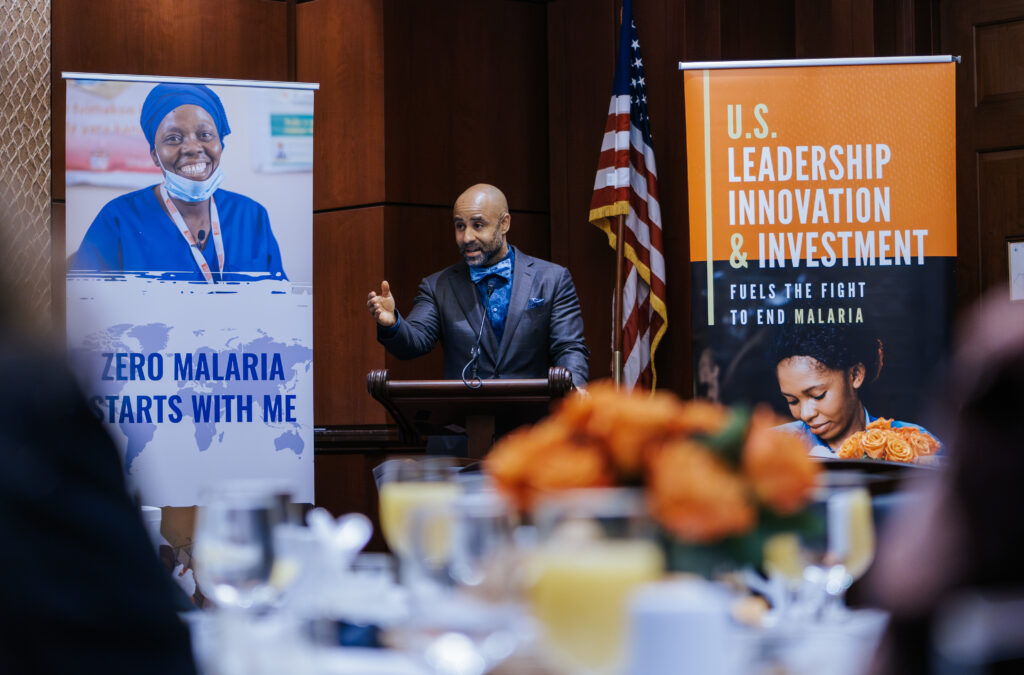
U.S. Global Malaria Coordinator Dr. David Walton announces PMI’s intention to partner with three additional countries- Burundi, The Gambia, and Togo- to help save more lives, because malaria knows no borders.
Cover Photo: U.S. Global Malaria Coordinator Dr. David Walton speaks with congressional leaders and global health champions at the Malaria Champions Breakfast
All Photo Credits: Taruni Donti/PMI

